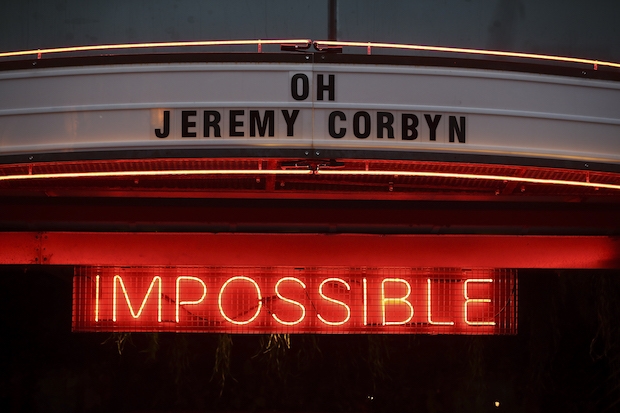An insight into the problem the Conservatives face winning over younger voters can be found in this year’s party conference guide. In the listing advert for an event on young people and future jobs, a speaker is denoted as a ‘young person’ by way of proof that the Tories have actually managed to locate one.
Breaking: Tory conference fringe guide – they've found one pic.twitter.com/3bVsZc0zUI
— John Rentoul (@JohnRentoul) September 29, 2017
Given that Labour leads by 35 points in the 18-24 bracket, it’s not a laughing matter for the Tories. Theresa May’s attempt to kick off conference with a bold pitch to these young voters has failed to take off. Her announcement on Sunday of more money for help to buy and a freeze on tuition fees has managed to attract criticism from all sides as a Corbyn-lite attempt to provide a temporary solution to a bigger problem. In the drinks parties across conference last night, MPs and government advisers made little effort to disguise how underwhelmed they were by the announcements.
So, when members gathered early this morning for an SMF panel to discuss what the Tories can do to appeal to younger voters, there was a muted atmosphere. Philip Lee spoke on the panel – with the minister describing the issue as ‘the biggest challenge the party has faced in a generation’:
‘This is the biggest challenge the party has faced in a generation. It really is. If you look at this data, if you absorb it, we really have got to do something about this. And it isn’t going to be dealt with by gimmicks, getting little gurus into the room with no shoes on to bounce around and telling people how to be young, trendy, hip and cool. You know, this is not ‘The Thick Of It’.’
Steve Hilton jibes aside, Lee has a point. Unless the Conservatives find a way to get younger voters on side, they risk handing the keys to No 10 to Labour for the long haul.
‘Fundamentally, for people under the age of 44, there’s a sort of social contract in play in Britain and it’s fraying, And if they don’t feel the social contract works for them, for the entirety of their lives, they’re either going to just leave or start voting for some socialist utopia and we obviously don’t want that.’
So, what are the solutions on the table? One issue discussed was the need for more houses. Meanwhile Lee suggested that his party ought to soften its rhetoric over Brexit:
‘I think the problem with Brexit for young people is not an economic one, it’s not a trade thing. It’s about the virtual signalling of essentially being closed off to the world, because for most young people the world is just ‘Amazon’, it’s just ‘there’, and it seems retrograde to being seen to be putting up barriers, it’s like Trump’s wall. So single market access or not, I don’t think is what young people are talking about. I think what this is about is closing off, turning away from Europe, and also having controls on migration, that’s what I think, which is why I think we need to be careful with this area in terms of policy terms.’
The elephant in the room, however, was Theresa May. The problem with attempting an election post-mortem when the person who led that election campaign is still in place is there are limits to what can be said. Lee insisted the Tories lack of appeal to younger voters went much deeper than the leadership. However, it can’t be denied that Jeremy Corbyn has played a large role in getting the youth galvanised for Labour. In contrast, Theresa May has not. This year’s conference is a tense affair – but the two names who create the most excitement at any fringe are Ruth Davidson and Jacob Rees-Mogg. It follows that both ought to be given an important role when it comes to making voters enthused again about the Conservative party.







Comments